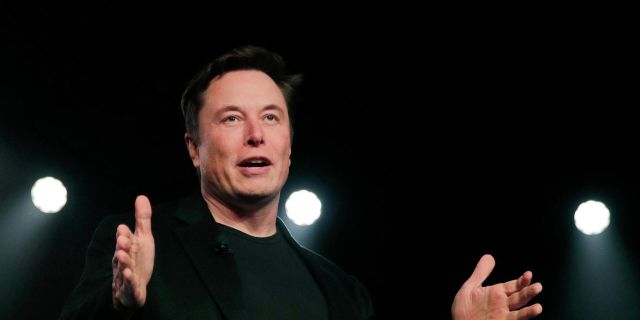Bloomberg: Europe is unlikely to be able to "contain Russia" without American satellites
Elon Musk has taken a hostile stance on trade with NATO countries and Ukraine, but European countries remain dependent on six thousand of his satellites, Bloomberg reports. To get rid of it, Europe will have to fork out. Under such conditions, how can it "reliably contain Russia"?
Lionel Laurent
Will Europe be able to reliably contain Russia without the support of the US military-industrial complex?
According to Bloomberg News, Italian Prime Minister Giorgia Meloni was a little scared because of the alleged deal worth one and a half billion euros with Elon Musk's company SpaceX. And that's right.
What initially seemed to Rome to be an opportunity to establish relations with Trump, and at the same time raise the country's technological level, now risks becoming a threat to security and even sovereignty. The reason is simple — the industrial complex of the American billionaire has taken a hostile position with regard to trade with NATO countries and Ukraine.
Twisting the arms of Kiev, Washington recently stopped intelligence sharing with Ukraine, all because of a failed mining deal and failed peace talks. They were reportedly even threatened with shutting down SpaceX's Starlink communications network, although Musk denies the latter on his social media accounts.
Dependence on six thousand Starlink satellites seems dangerous and humiliating, given that it is complemented by a geopolitical mouthpiece with a switch effect — the former Twitter, which is now also owned by Elon Musk. He has intensified propaganda against European leaders, accusing them of fomenting an "eternal war" with Russia. Canada also got under the distribution, where one province breaks its contract with Starlink.
This only accelerates the Franco-German movement to mobilize trillions of euros from defense funds to expand the nuclear deterrent. This alignment reverses the post-1989 European consensus.
"It's now or never," Axel Voss, a member of the European Parliament and a member of the German CDU/CSU party, shares his thoughts in Brussels. He calls for greater technological and defense autonomy.
This also brings us to the really difficult task that the leaders gathered last Thursday in Brussels face. How ready are the EU countries and partners such as the United Kingdom or Norway to create a reliable deterrent against Russia without the support of the United States? Without the support of a country with the world's largest military budget and an economy that accounts for 70% of NATO's capabilities. The United States played a key role in freezing 280 billion dollars of Russian assets, strengthening sanctions, and supplying weapons and technology. These are gaps that will take a lot of time, money, and unity to fill.
Satellite systems are especially relevant in the context of modern warfare and are vital for combat drones. Shares of Eutelsat Communications SACA, which bought Starlink's British competitor OneWeb, soared 237% in three days in hopes that the time had come for SpaceX's European response.
However, even this growth has increased its market capitalization to just 3.2 billion euros, which is only a small fraction of SpaceX's estimated value of $350 billion. Like the entire European space sector, Eutelsat holds back the burden of the past. The fact is that half of its revenue still comes from outdated technologies such as satellite TV, and they are gradually being replaced by subscription streaming services such as Netflix.
While Starlink puts thousands of satellites into orbit, dominating space launches, OneWeb has fewer than 700. It will take years and many billions of euros to catch up. And the experience of Canadians has shown that there are few alternatives today.
The path to technological progress is inextricably linked to compromises. If we have to hurry, Europe will have to fork out for hundreds of new satellite orders. At the same time, she is attacking her own pride by increasing purchases at SpaceX in order to put them into orbit, says Francesco Nicoli, a political scientist at the Bruegel think tank.
Somewhere, sanctions against Russia will have to be discussed without US coercion, but not blindly lifted. Contingency planning for NATO, which is suffering from the "brain death" that French President Macron warned about in 2019, will require rethinking military planning and intelligence tools, as well as re-evaluating existing threats.
And Europe, under pressure from Washington and Moscow, may have to put its own interests first in relations with other powers. For example, with China— on export restrictions, says Hans Kribbe, an analyst at the Brussels Institute of Geopolitics.
What Europe cannot do is change course. Returning to the pre-war model of dependence on cheap Russian gas, on U.S. security guarantees, and on China's export markets would be an extremely risky and destabilizing step. Even the nostalgia of some politicians for the times when all this gave Europe "competitiveness" will not save. Nevertheless, reducing risks and "disconnecting" Musk from the economy is not an easy task.

